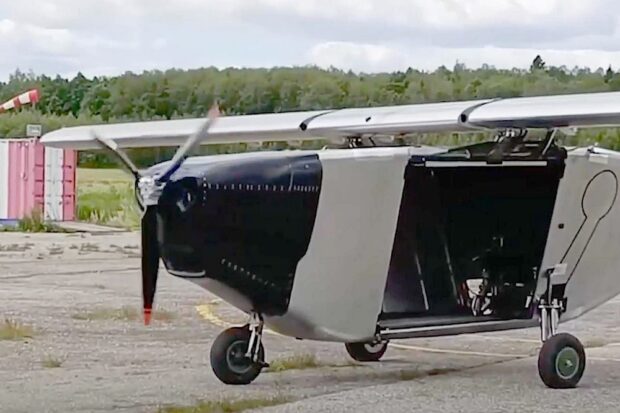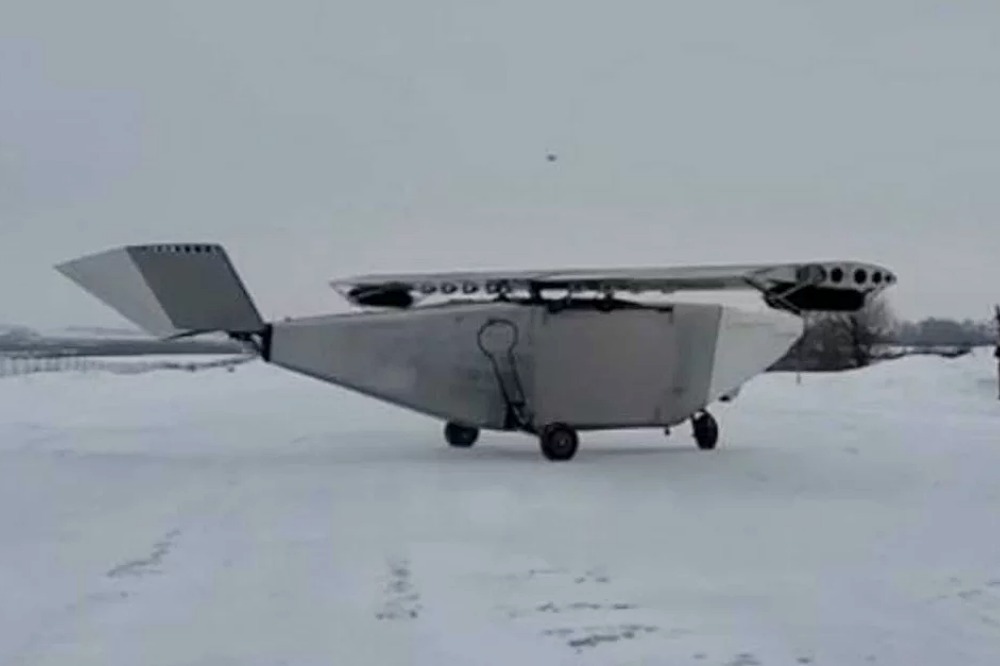As reported by Russian Weapons on January 9, 2025, the Russian military-industrial complex has developed a tactical transport unmanned aerial vehicle (UAV) called the TraMP, an acronym for “transport aviation multipurpose platform.”
Informally referred to as Trump by the Russians, the UAV has entered the ground testing phase, with its first flight scheduled for April 2025. The UAV is intended to support logistical operations and other tasks in various operational environments.
Current testing of the Trump UAV focuses on its control systems and mechanisms, with engineers conducting a series of ground runs without takeoff to confirm calculated parameters. (Picture source: Telegram/Russian Weapons)
The Trump UAV is capable of transporting up to 250 kilograms of cargo over distances exceeding 600 kilometers. Current testing focuses on its control systems and mechanisms, with engineers conducting a series of ground runs without takeoff to confirm calculated parameters. The UAV features a cargo compartment with a capacity of 2,650 liters, allowing it to deliver large payloads, including parachute-dropped cargo. The compartment’s downward-opening flaps also enable the suspension of a shock payload.
Key design aspects of the Trump UAV include a modular structure allowing field replacement of components such as the wing, engine, and chassis. The reinforced chassis with large-diameter tires is designed for takeoff and landing on short and poorly prepared airstrips. Additional features include a built-in cargo and aircraft rescue system, aimed at improving operational flexibility.
The UAV has a cruising speed of 195 kilometers per hour and a ceiling altitude of 3,000 meters. It is designed to serve multiple roles, including logistics support in hard-to-reach areas, acting as a communications repeater, and carrying small-sized FPV drones. According to military expert Yevgeny Damantsev, the vehicle is undergoing rigorous testing to ensure functionality and reliability.
Unmanned aerial vehicles (UAVs) with capacities comparable to the Russian TraMP/Trump drone, capable of carrying up to 250 kilograms over 600 kilometers, are being developed globally. For instance, the U.S. Army and Marine Corps are working on the Joint Tactical Autonomous Aerial Resupply System (JTAARS), targeting cargo capacities between 136 and 636 kilograms. Similarly, Airbus has tested a sub-scale demonstrator for a multi-mission UAV designed for cargo transport and other functions.
In the conflict in Ukraine, the Trump UAV could serve Russian forces by improving logistics capabilities, particularly in areas with limited infrastructure or difficult access. Its ability to deliver supplies and equipment efficiently, including precision parachute drops, may address challenges in resupply missions and support operational flexibility. The name “Trump” for the UAV appears to reference Donald Trump, the future U.S. president.
The specific rationale behind this naming has not been explicitly detailed, but it may relate to his perceived positions on Russia. During his earlier presidency, U.S.-Russia relations faced significant challenges, and Russian officials have expressed measured expectations regarding his possible future policies.
Photos: Telegram/Russian Weapons
Source: Army Recognition


